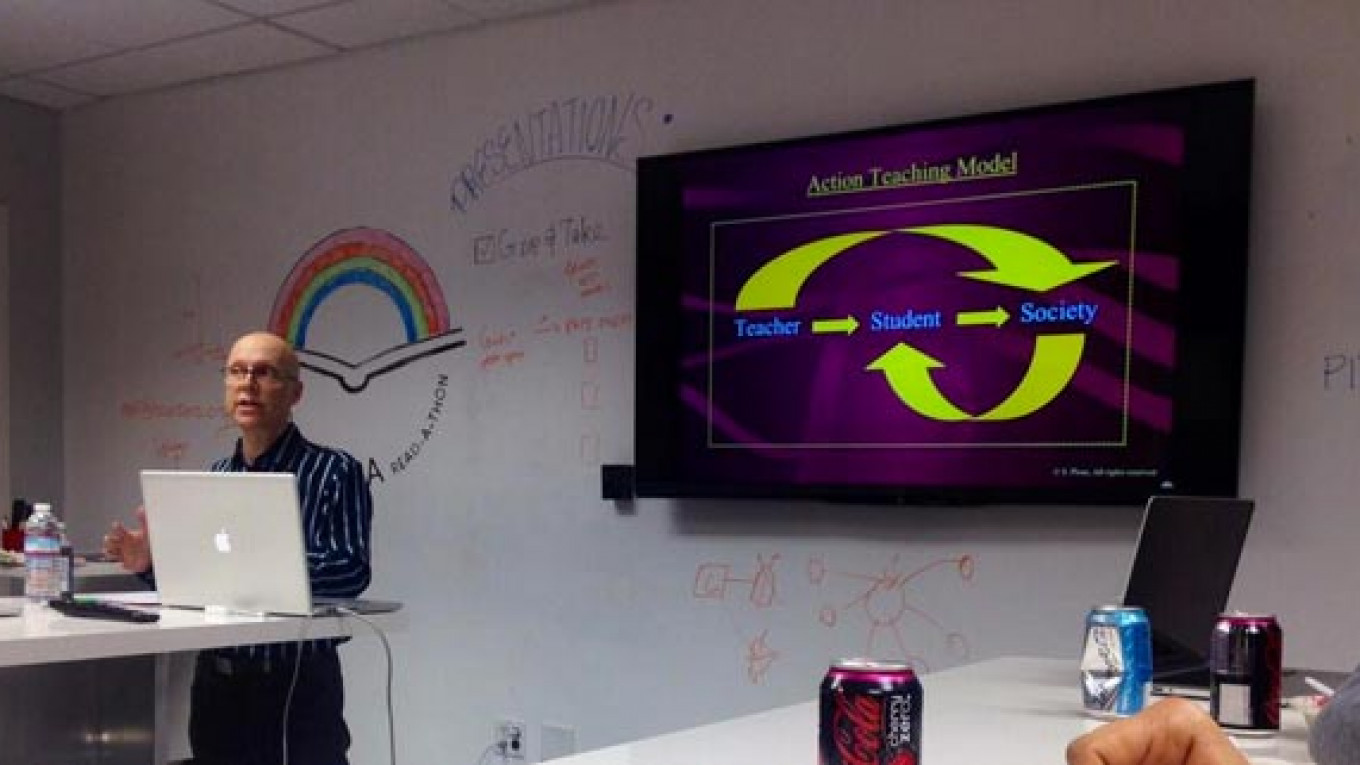Coursera, a U.S.-based online education site, plans to reach its already thriving Russian audience by translating its material into Russian.
The California-based firm, which has 5 million registered users, is cooperating with the Russian company ABBYY Language Services, which will use crowdsourcing to translate the courses.
Coursera, founded in 2012 by Stanford professors Daphne Koller and Andrew Ng, will translate their courses into Russian as part of a mass campaign to translate their material into different languages.
Their site follows the idea of MOOC — massive open online courses — which means it gives access to different courses for free. The company charges only for issuing certificates to students and for certifying different courses.
The Russian audience is Coursera’s most rapidly growing audience after the U.S., said Ivan Smolnikov, CEO at ABBYY Language Services. Although Russian-speaking users accounted for only 2.3 percent of Coursera’s audience in 2013, co-founder Daphne Koller recently said the number of Russian users has increased 230 percent in the past 6 months.
Coursera boasts about $85 million in investments and hit $1 million in revenue in September 2013.
“At first Coursera was cooperating with Digital October, but it turned out that their translation was too expensive,” said Smolnikov. ABBYY Language Services stepped in to coordinate crowdsourcing, a method by which a large group of volunteers provide content. Currently there are about 1,000 translators working for free.
Some of the volunteers are just enthusiasts who are eager to practice their English. Others are drawn by the bonuses the participation in the project gives them. The best translators may get a Coursera certificate for free for any course they would like to take.
Three courses have already been translated, but have not been published online yet.
“The idea of having Coursera in Russian may be a positive thing for the Russian online education system as a whole,” said Anatoly Shkred, the founder of Russian online education platform Intuit, which is one of the pioneers in the field. He added that this may “warm up the market” and create additional interest in online education. However, he added that “the introduction of Coursera courses may lead to a domination of the U.S. education system, which is not that good.”
Yelena Masolova, CEO at the online platform for business education Eduson.tv, echoed Shkred’s words, saying the introduction of Coursera will be a positive trend for the whole market and increase the public’s appetite for learning from different online platforms.
However, relationships with regulatory bodies, not consumers, may be the sticking point. Online education platforms often struggle in their relations with officials, said Shkred. The Russian Education Ministry’s old system is too clumsy and does not take into account some specific features of online education. “For example, as a registered educational institution I need to have a gym and a canteen, which sounds really ridiculous for an online platform,” said Shkred.
Contact the author at [email protected]
A Message from The Moscow Times:
Dear readers,
We are facing unprecedented challenges. Russia's Prosecutor General's Office has designated The Moscow Times as an "undesirable" organization, criminalizing our work and putting our staff at risk of prosecution. This follows our earlier unjust labeling as a "foreign agent."
These actions are direct attempts to silence independent journalism in Russia. The authorities claim our work "discredits the decisions of the Russian leadership." We see things differently: we strive to provide accurate, unbiased reporting on Russia.
We, the journalists of The Moscow Times, refuse to be silenced. But to continue our work, we need your help.
Your support, no matter how small, makes a world of difference. If you can, please support us monthly starting from just $2. It's quick to set up, and every contribution makes a significant impact.
By supporting The Moscow Times, you're defending open, independent journalism in the face of repression. Thank you for standing with us.
Remind me later.






